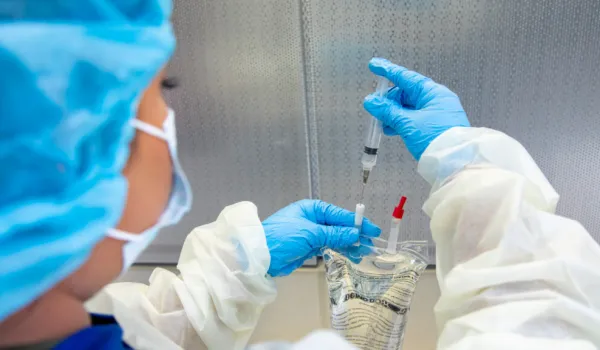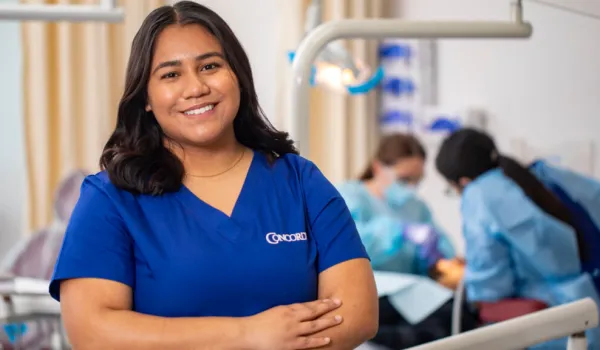
Saturday is National Hugging Day. And, we at Concorde are always invested in our students, faculty, and staff getting all the hugs and love they need, especially when in the midst of health care career training.
So, we thought we'd take a look into the therapeutic effects of hugs. We know a good hug can feel good, make us feel loved and wanted, even warm us on a cold winter's day. But is that therapeutic? Well, it certainly can be.
The website Mindbodygreen.com published in August 2012 a list of "10 Reasons Why We Need at Least 8 Hugs a Day." Eight might seem a bit much, but there appears to be some science to it. Let's take a closer look.
10 reasons why we need at least eight hugs a day
According to Mindbodygreen.com, hugging therapy is definitely a powerful way of healing. Research shows that hugging (along with laughter) is extremely effective at healing sickness, disease, loneliness, depression, anxiety, and stress.
Research shows a proper deep hug, where the hearts are pressing together, can benefit you in these ways.
- The nurturing touch of a hug builds trust and a sense of safety. This helps with open and honest communication.
- Hugs instantly boost oxytocin levels, which heal feelings of loneliness, isolation, and anger.
- Holding a hug for an extended time lifts serotonin levels, elevating mood.
- Hugs strengthen the immune system. The gentle pressure on the sternum and the emotional charge this creates activates the solar plexus chakra. This stimulates the thymus gland, which regulates and balances the body's production of white blood cells.
- Hugging boosts self-esteem. It begins when we're born and infants and is embedded in our nervous system as adults. Hugs, therefore, connect us to our ability to self-love.
- Hugging relaxes muscles. Hugs release tension in the body. Hugs can take away pain; they soothe aches by increasing circulation into the soft tissues.
- Hugs balance the nervous system. Sensations are created on the skin which stimulates nerve endings.
- They teach us how to give and receive. They educate us on how love flows both ways.
- Hugs are much like meditation and laughter. They teach us to let go and be present in the moment. They encourage us to flow with the energy of life.
- The energy exchange between people hugging is an investment in the relationship. It encourages empathy and understanding. And, it's synergistic, which is more likely to result in win-win outcomes.
More hugs, please, during health care career training
Virginia Satir, a respected family therapist, once said, "We need four hugs a day for survival, eight hugs a day for maintenance and 12 hugs a day for growth." Eight or more might seem like a bit much, but when we're all striving to complete health care career training, why not shoot high? We all can use all the love we can get!
Take The Next Step Towards a Brighter Future
We have a Concorde representative ready to talk about what matters most to you. Get answers about start dates, curriculum, financial aid, scholarships and more!




